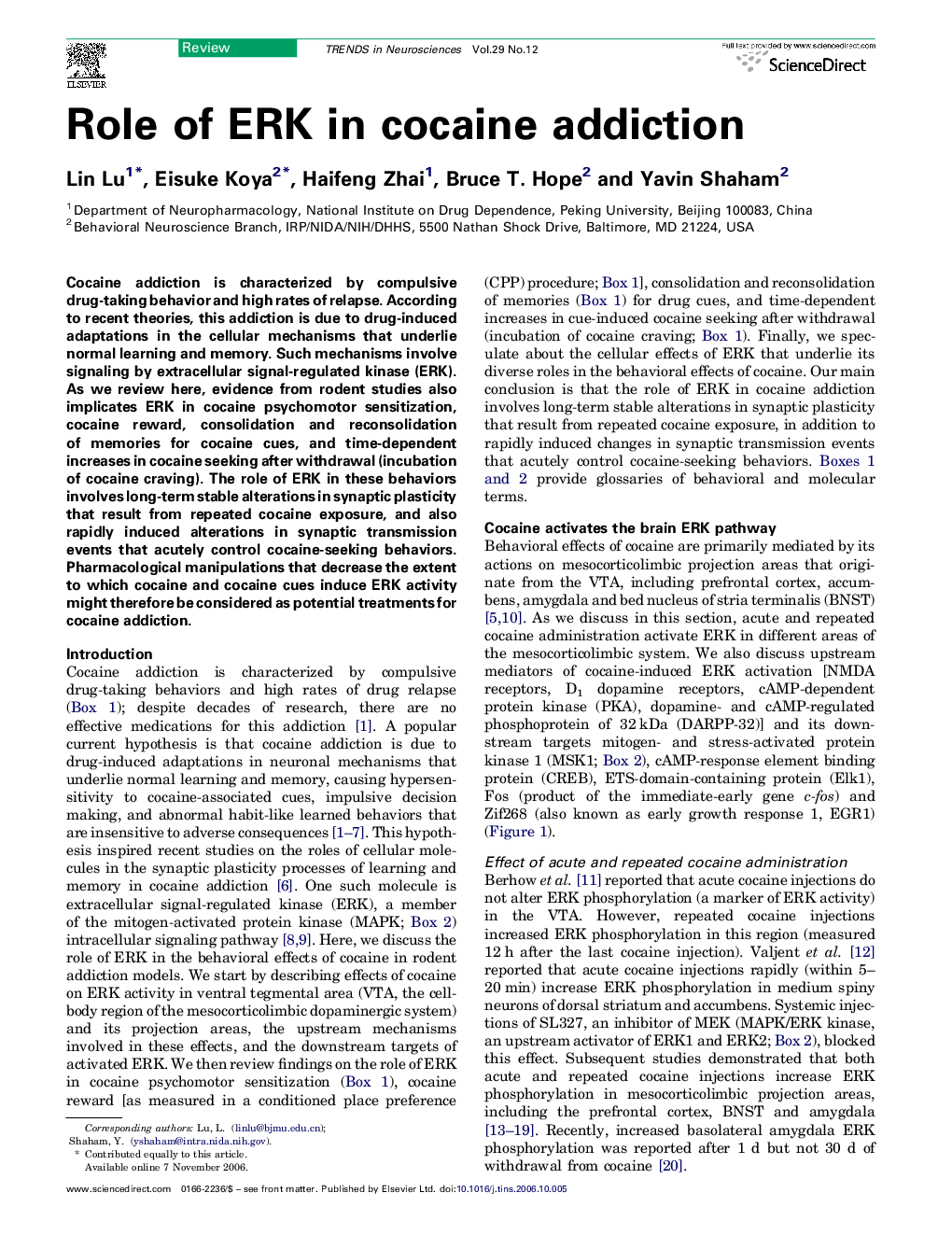| Article ID | Journal | Published Year | Pages | File Type |
|---|---|---|---|---|
| 4355022 | Trends in Neurosciences | 2006 | 9 Pages |
Cocaine addiction is characterized by compulsive drug-taking behavior and high rates of relapse. According to recent theories, this addiction is due to drug-induced adaptations in the cellular mechanisms that underlie normal learning and memory. Such mechanisms involve signaling by extracellular signal-regulated kinase (ERK). As we review here, evidence from rodent studies also implicates ERK in cocaine psychomotor sensitization, cocaine reward, consolidation and reconsolidation of memories for cocaine cues, and time-dependent increases in cocaine seeking after withdrawal (incubation of cocaine craving). The role of ERK in these behaviors involves long-term stable alterations in synaptic plasticity that result from repeated cocaine exposure, and also rapidly induced alterations in synaptic transmission events that acutely control cocaine-seeking behaviors. Pharmacological manipulations that decrease the extent to which cocaine and cocaine cues induce ERK activity might therefore be considered as potential treatments for cocaine addiction.
